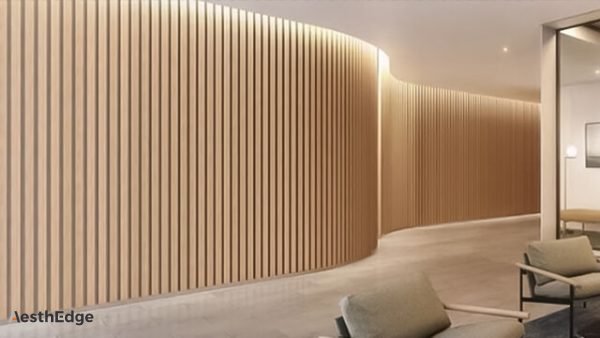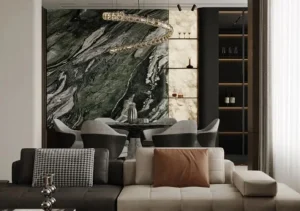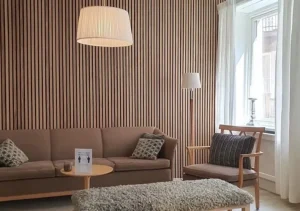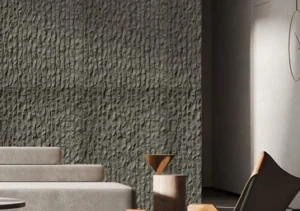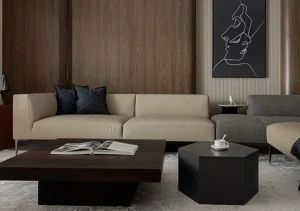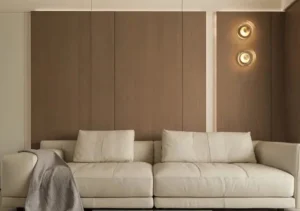Table of Contents
ToggleIntroduction
Wood-Plastic Composite (WPC) wall panels have gained significant popularity in the construction and interior design industries due to their durability, weather resistance, and eco-friendly composition. For B2B buyers, understanding the life expectancy of WPC wall panels is crucial for making informed purchasing decisions. This article provides a comprehensive analysis of the lifespan of WPC wall panels, including key factors affecting durability, performance under various conditions, and maintenance requirements.
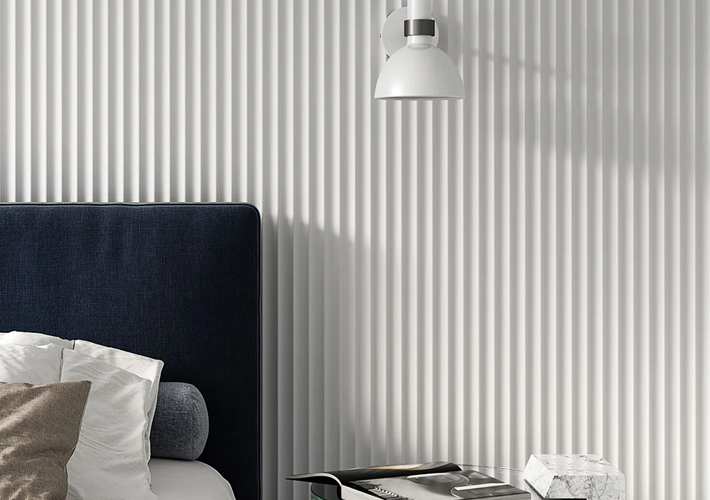
Average Life Expectancy of WPC Wall Panels
Under normal conditions, WPC wall panels have a life expectancy of 20 to 30 years. However, their actual lifespan depends on factors such as material composition, installation environment, exposure to weather elements, and maintenance practices.
1. Indoor Applications
For indoor installations, such as residential interiors, commercial spaces, and office buildings, WPC wall panels can last more than 30 years. They are not exposed to extreme weather conditions, which significantly extends their durability.
Key Features Enhancing Indoor Longevity:
- Moisture Resistance: Unlike traditional wood panels, WPC does not absorb moisture, preventing warping and mold growth.
- Impact Resistance: WPC panels are highly durable and resistant to scratches, making them suitable for high-traffic areas.
- Fire Retardancy: Many WPC panels include fire-resistant additives, making them safer for indoor use.
2. Outdoor Applications
For exterior wall cladding, WPC wall panels are exposed to UV radiation, temperature fluctuations, moisture, and mechanical stress. In such environments, proper installation and maintenance can ensure a lifespan of 20-25 years.
Key Features for Outdoor Durability:
- UV Protection: Panels with UV stabilizers prevent fading and discoloration.
- Weather Resistance: WPC panels withstand extreme temperatures without cracking or expanding excessively.
- Pest Resistance: Unlike natural wood, WPC panels are resistant to termites and other pests.
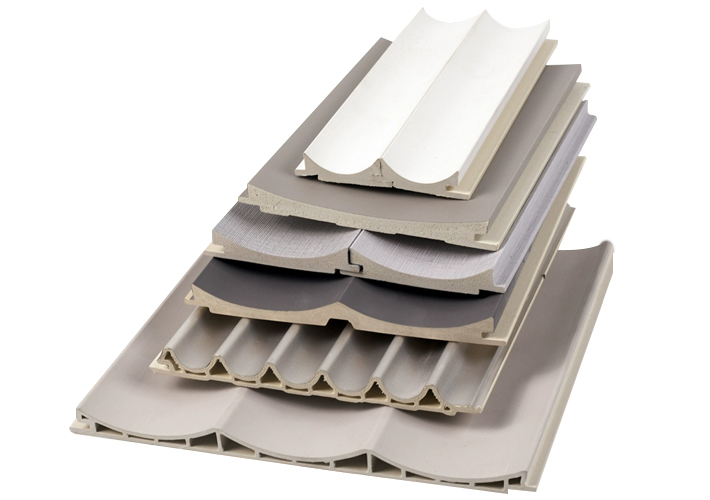
Factors Affecting the Life Expectancy of WPC Wall Panels
Several factors determine how long WPC wall panels will last:
1. Material Composition
WPC panels consist of wood fiber (or bamboo powder), plastic (PVC, PE, or PP), and additives. A high-quality formulation ensures better durability:
- Wood fiber content (50-70%) improves the natural appearance but may require protective coatings.
- Plastic content (30-50%) enhances waterproofing, UV resistance, and impact resistance.
- Additives (UV stabilizers, anti-mold agents, and color enhancers) extend the lifespan.
Best Practices for Quality Material Selection:
- Choose panels with higher-grade polymers and protective additives.
- Opt for co-extruded WPC panels, which have an extra protective layer for enhanced
2. Manufacturing Process
The production method impacts WPC panel durability:
- Co-extrusion technology: Increases surface hardness and UV resistance.
- Single-layer WPC panels: More cost-effective but may degrade faster outdoors.
- High-temperature pressing and extrusion: Ensures a more stable and dense structure, reducing internal weaknesses.
3. Environmental Exposure
- Humidity & Moisture: WPC panels are water-resistant but prolonged exposure to extreme humidity may impact their integrity.
- UV Radiation: High sun exposure may cause fading over time, but UV stabilizers can reduce this effect.
- Temperature Fluctuations: Extreme heat or cold can lead to expansion and contraction, affecting panel longevity.
- Chemical Exposure: Harsh chemicals can degrade the plastic components of WPC panels over time.
4. Installation Quality
Proper installation enhances durability:
- Using professional installation techniques prevents warping and deformation.
- Applying correct fasteners and sealing methods minimizes moisture infiltration.
- Leaving expansion gaps accommodates natural thermal movement.
5. Maintenance Practices
WPC wall panels require minimal maintenance, but regular cleaning and protective measures can further extend their life:
- Cleaning with mild detergents removes dirt and mold buildup.
- Avoiding harsh chemicals prevents surface damage.
- Applying UV protection coatings enhances longevity for outdoor applications.
- Inspecting for damages periodically allows for early repairs, preventing further deterioration.

WPC Wall Panels vs. Other Wall Materials: Lifespan Comparison
| Material | Life Expectancy | Maintenance Level | Durability |
|---|---|---|---|
| WPC Wall Panels | 20-30 years | Low | High |
| PVC Wall Panels | 10-20 years | Low | Medium |
| Natural Wood Panels | 10-15 years | High | Medium |
| Gypsum Board | 10-15 years | Medium | Low |
| Metal Cladding | 30-50 years | Medium | High |
Compared to traditional materials like natural wood, gypsum, or PVC panels, WPC wall panels offer superior durability and lower maintenance requirements, making them an ideal choice for long-term installations.
How to Choose Long-Lasting WPC Wall Panels
For B2B buyers looking to source durable WPC wall panels, here are key selection criteria:
1. Verify Raw Material Quality
- Choose high-quality recycled plastic and wood fiber for maximum durability.
- Request material composition reports from manufacturers.
- Prefer suppliers that use high-density polymer resins, ensuring strength and flexibility.
2. Assess Surface Treatment & Protection
- Co-extrusion panels last longer than single-layer panels.
- UV-coated panels prevent discoloration in outdoor settings.
- Embossed or textured finishes provide better scratch resistance.
3. Check Certifications & Standards
- ISO, CE, SGS, and RoHS certifications ensure high manufacturing quality.
- Fire-resistant and anti-mold certifications enhance safety and longevity.
- Compliance with environmental sustainability standards is beneficial for eco-conscious buyers.
4. Evaluate Supplier Reputation
- Work with reliable manufacturers offering warranty coverage (typically 10-15 years for WPC panels).
- Request product samples before bulk purchasing.
- Check customer reviews and case studies to assess product performance in real applications.
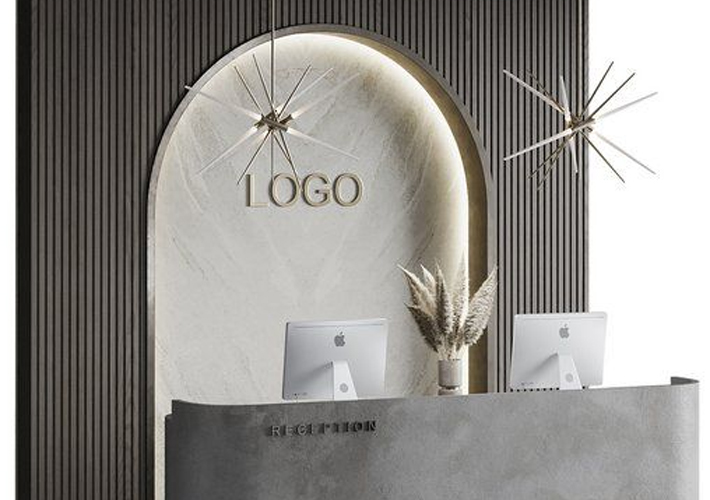
Conclusion
WPC wall panels have an impressive lifespan of 20-30 years, making them a cost-effective and durable choice for both indoor and outdoor applications. Their longevity depends on material quality, installation standards, exposure conditions, and maintenance practices.
For B2B buyers, choosing high-quality WPC panels from reputable manufacturers ensures long-term performance and customer satisfaction. If you are looking for wholesale WPC wall panels, contact us today for competitive pricing and free samples!

